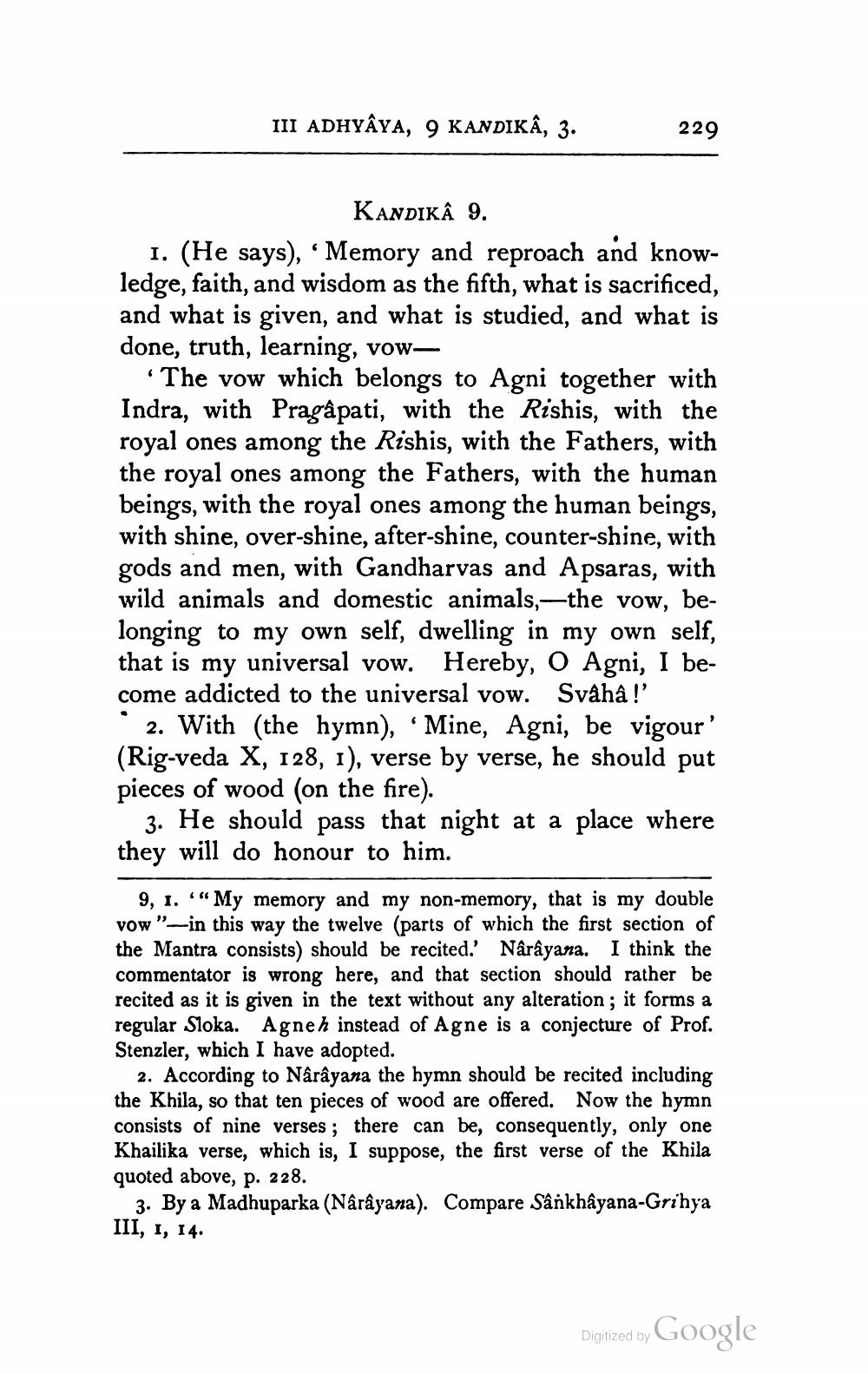________________
III ADHYÂYA, 9 KANDIKÂ, 3.
229
KANDIKÂ 9. 1. (He says), · Memory and reproach and knowledge, faith, and wisdom as the fifth, what is sacrificed, and what is given, and what is studied, and what is done, truth, learning, vow
The vow which belongs to Agni together with Indra, with Pragâpati, with the Rishis, with the royal ones among the Rishis, with the Fathers, with the royal ones among the Fathers, with the human beings, with the royal ones among the human beings, with shine, over-shine, after-shine, counter-shine, with gods and men, with Gandharvas and Apsaras, with wild animals and domestic animals,—the vow, belonging to my own self, dwelling in my own self, that is my universal vow. Hereby, O Agni, I become addicted to the universal vow. Svâhâ !' . 2. With (the hymn), Mine, Agni, be vigour' (Rig-veda X, 128, 1), verse by verse, he should put pieces of wood (on the fire).
3. He should pass that night at a place where they will do honour to him.
9, 1. ""My memory and my non-memory, that is my double vow"-in this way the twelve (parts of which the first section of the Mantra consists) should be recited.' Nârâyana. I think the commentator is wrong here, and that section should rather be recited as it is given in the text without any alteration; it forms a regular Sloka. Agneh instead of Agne is a conjecture of Prof. Stenzler, which I have adopted.
2. According to Narayana the hymn should be recited including the Khila, so that ten pieces of wood are offered. Now the hymn consists of nine verses; there can be, consequently, only one Khailika verse, which is, I suppose, the first verse of the Khila quoted above, p. 228.
3. By a Madhuparka (Narayana). Compare Sânkhayana-Grihya III, I, 14.
Digitized by Google




